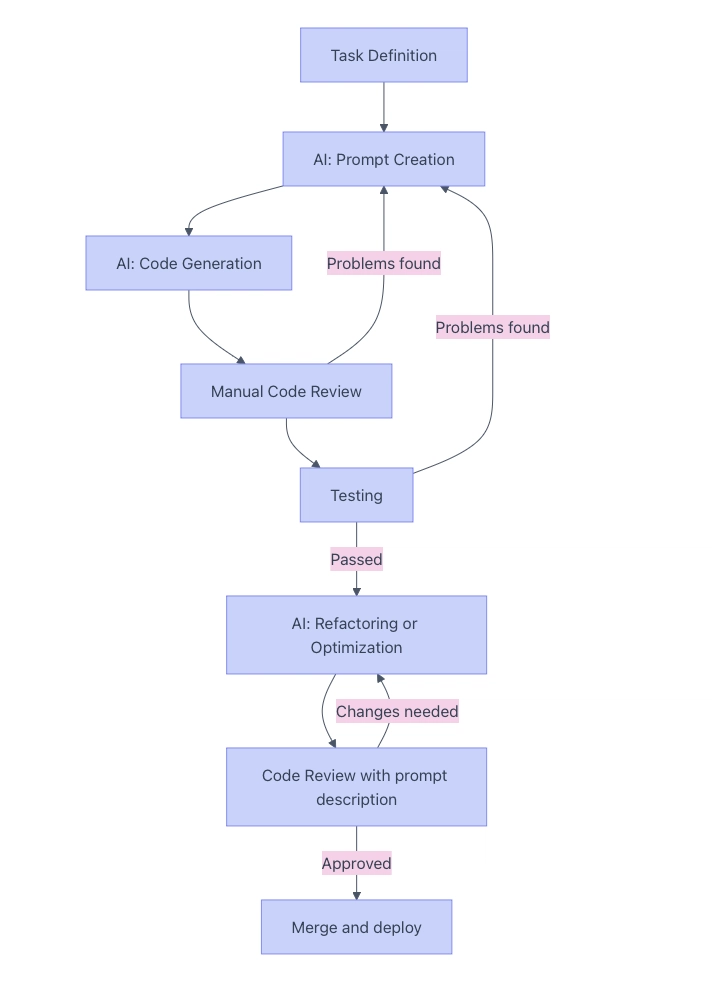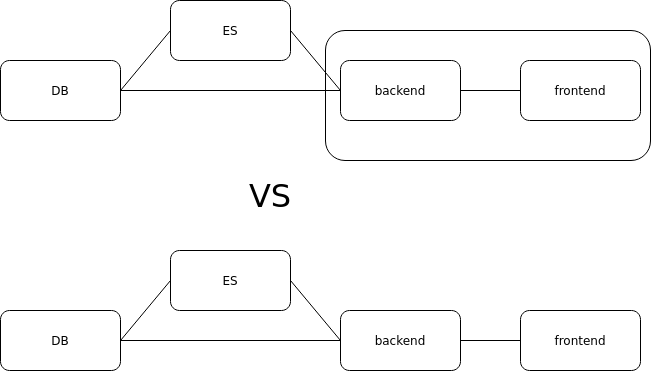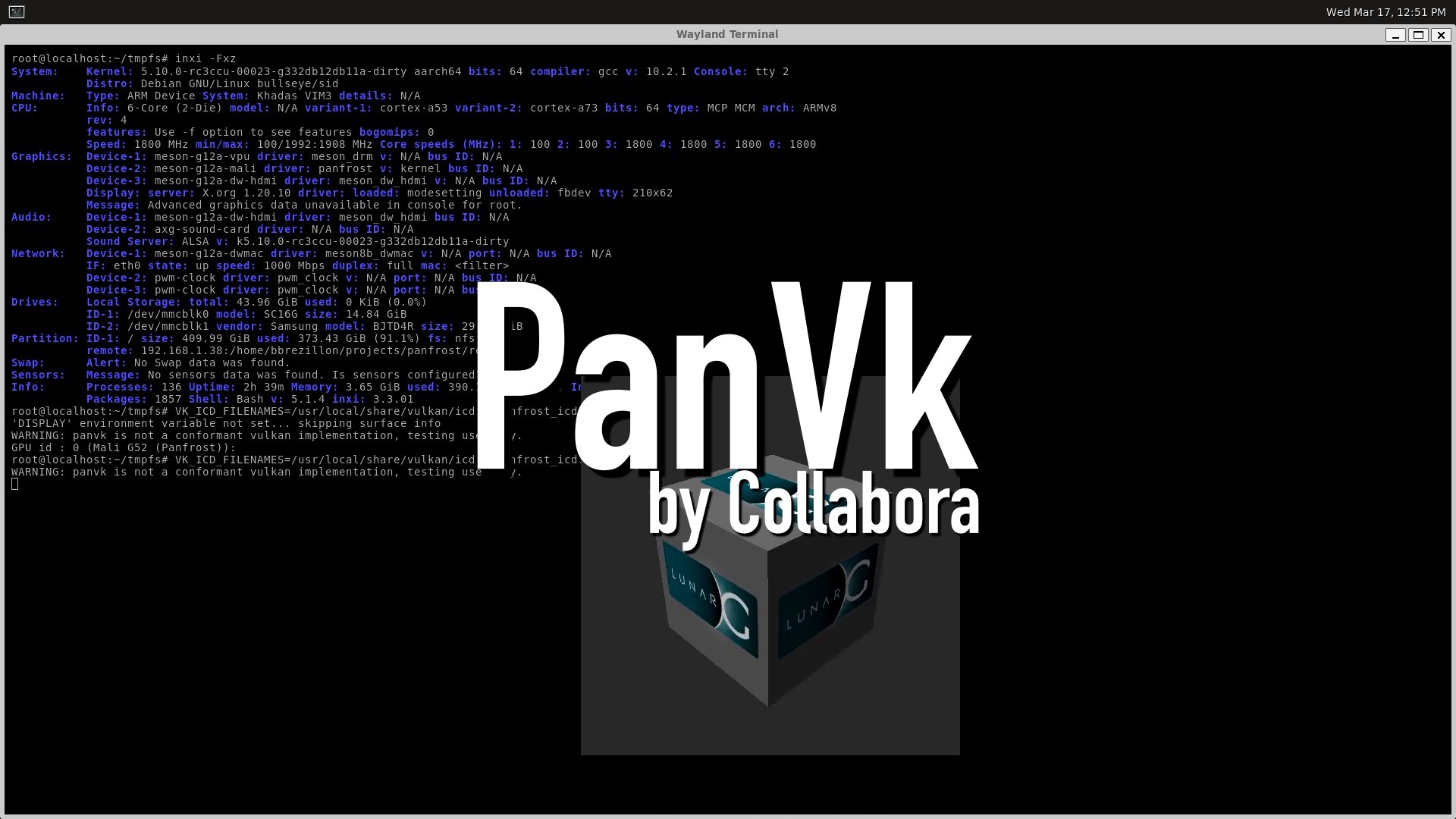Compiler-Assisted Optimization in Go: Boosting Performance with Code Generation
As a best-selling author, I invite you to explore my books on Amazon. Don't forget to follow me on Medium and show your support. Thank you! Your support means the world! Go's code generation capabilities offer a powerful approach to enhancing performance while maintaining clean, readable code. With the go generate tool, developers can implement compiler-assisted optimizations that transform standard Go code into highly optimized versions tailored to specific use cases. Understanding Go Generate The go generate command executes commands described by directives within Go source code. These directives take the form of specially formatted comments: //go:generate command argument... When you run go generate in your project, it scans for these directives and executes the specified commands. This mechanism enables automatic code generation as part of your build process. I've found this approach particularly valuable for performance-critical applications. Rather than writing complex, hard-to-maintain optimized code directly, I can maintain clean implementations while the generator produces optimized versions. How Compiler-Assisted Optimization Works The optimization process typically involves these steps: Write clear, idiomatic Go code Add //go:generate directives to trigger code generation Create generator scripts that analyze and transform the code Run go generate before building Use the generated optimized code in your application This approach separates optimization concerns from business logic, making your codebase more maintainable. Building a Basic Generator Let's implement a simple generator that optimizes our sample processData function: // gen_optimized.go package main import ( "fmt" "os" "regexp" ) func main() { // Read the original source file src, err := os.ReadFile("main.go") if err != nil { panic(err) } content := string(src) // Replace the processData function with an optimized version re := regexp.MustCompile(`func processData\([^)]+\) [^{]+{[^}]+}`) optimized := `func processData(items []string) int { count := 0 // Process in batches for better CPU cache utilization batchSize := 64 n := len(items) // Fast path for batches for i := 0; i = 6 && items[i+j][0] == 'v' && items[i+j][1] == 'a' && items[i+j][2] == 'l' && items[i+j][3] == 'i' && items[i+j][4] == 'd' && items[i+j][5] == '_' { count++ } } } // Handle remaining items for i := n - (n % batchSize); i < n; i++ { if len(items[i]) >= 6 && items[i][0] == 'v' && items[i][1] == 'a' && items[i][2] == 'l' && items[i][3] == 'i' && items[i][4] == 'd' && items[i][5] == '_' { count++ } } return count }` newContent := re.ReplaceAllString(content, optimized) // Write the modified content back to a new file err = os.WriteFile("main_optimized.go", []byte(newContent), 0644) if err != nil { panic(err) } fmt.Println("Generated optimized version in main_optimized.go") } This generator creates an optimized version that: Processes data in batches for better cache utilization Replaces string function calls with direct byte comparisons Avoids function call overhead Uses loop unrolling for the prefix check Advanced Optimization Techniques SIMD Vectorization For numeric processing, we can generate code that leverages SIMD (Single Instruction, Multiple Data) instructions. While Go doesn't provide direct SIMD support, we can use assembly or the math/bits package for certain optimizations. Here's an example generator that creates a SIMD-optimized version: // gen_simd.go package main import ( "fmt" "os" "text/template" ) func main() { // Define a template for SIMD-optimized sum function const simdTemplate = ` // Code generated by gen_simd.go; DO NOT EDIT. package main import "unsafe" // sumInt32SIMD uses SIMD instructions when available to sum an int32 slice func sumInt32SIMD(data []int32) int32 { length := len(data) if length == 0 { return 0 } var sum int32 // Process 8 elements at a time const vectorSize = 8 limit := length - (length % vectorSize) for i := 0; i < limit; i += vectorSize { sum += data[i] + data[i+1] + data[i+2] + data[i+3] + data[i+4] + data[i+5] + data[i+6] + data[i+7] } // Process remaining elements for i := limit; i < length; i++ { sum += data[i] } return sum } ` // Generate the file out, err := os.Create("simd_generated.go") if err != nil { panic(err) } defer out.Close() tmpl, err := template.New("simd").Parse(simdTemplate) if err != nil { panic(err) } err = tmpl.Execute(out, nil) if err != nil { panic(err) } fmt.Pr

As a best-selling author, I invite you to explore my books on Amazon. Don't forget to follow me on Medium and show your support. Thank you! Your support means the world!
Go's code generation capabilities offer a powerful approach to enhancing performance while maintaining clean, readable code. With the go generate tool, developers can implement compiler-assisted optimizations that transform standard Go code into highly optimized versions tailored to specific use cases.
Understanding Go Generate
The go generate command executes commands described by directives within Go source code. These directives take the form of specially formatted comments:
//go:generate command argument...
When you run go generate in your project, it scans for these directives and executes the specified commands. This mechanism enables automatic code generation as part of your build process.
I've found this approach particularly valuable for performance-critical applications. Rather than writing complex, hard-to-maintain optimized code directly, I can maintain clean implementations while the generator produces optimized versions.
How Compiler-Assisted Optimization Works
The optimization process typically involves these steps:
- Write clear, idiomatic Go code
- Add
//go:generatedirectives to trigger code generation - Create generator scripts that analyze and transform the code
- Run
go generatebefore building - Use the generated optimized code in your application
This approach separates optimization concerns from business logic, making your codebase more maintainable.
Building a Basic Generator
Let's implement a simple generator that optimizes our sample processData function:
// gen_optimized.go
package main
import (
"fmt"
"os"
"regexp"
)
func main() {
// Read the original source file
src, err := os.ReadFile("main.go")
if err != nil {
panic(err)
}
content := string(src)
// Replace the processData function with an optimized version
re := regexp.MustCompile(`func processData\([^)]+\) [^{]+{[^}]+}`)
optimized := `func processData(items []string) int {
count := 0
// Process in batches for better CPU cache utilization
batchSize := 64
n := len(items)
// Fast path for batches
for i := 0; i <= n-batchSize; i += batchSize {
for j := 0; j < batchSize; j++ {
if len(items[i+j]) >= 6 && items[i+j][0] == 'v' && items[i+j][1] == 'a' &&
items[i+j][2] == 'l' && items[i+j][3] == 'i' && items[i+j][4] == 'd' &&
items[i+j][5] == '_' {
count++
}
}
}
// Handle remaining items
for i := n - (n % batchSize); i < n; i++ {
if len(items[i]) >= 6 && items[i][0] == 'v' && items[i][1] == 'a' &&
items[i][2] == 'l' && items[i][3] == 'i' && items[i][4] == 'd' &&
items[i][5] == '_' {
count++
}
}
return count
}`
newContent := re.ReplaceAllString(content, optimized)
// Write the modified content back to a new file
err = os.WriteFile("main_optimized.go", []byte(newContent), 0644)
if err != nil {
panic(err)
}
fmt.Println("Generated optimized version in main_optimized.go")
}
This generator creates an optimized version that:
- Processes data in batches for better cache utilization
- Replaces string function calls with direct byte comparisons
- Avoids function call overhead
- Uses loop unrolling for the prefix check
Advanced Optimization Techniques
SIMD Vectorization
For numeric processing, we can generate code that leverages SIMD (Single Instruction, Multiple Data) instructions. While Go doesn't provide direct SIMD support, we can use assembly or the math/bits package for certain optimizations.
Here's an example generator that creates a SIMD-optimized version:
// gen_simd.go
package main
import (
"fmt"
"os"
"text/template"
)
func main() {
// Define a template for SIMD-optimized sum function
const simdTemplate = `
// Code generated by gen_simd.go; DO NOT EDIT.
package main
import "unsafe"
// sumInt32SIMD uses SIMD instructions when available to sum an int32 slice
func sumInt32SIMD(data []int32) int32 {
length := len(data)
if length == 0 {
return 0
}
var sum int32
// Process 8 elements at a time
const vectorSize = 8
limit := length - (length % vectorSize)
for i := 0; i < limit; i += vectorSize {
sum += data[i] + data[i+1] + data[i+2] + data[i+3] +
data[i+4] + data[i+5] + data[i+6] + data[i+7]
}
// Process remaining elements
for i := limit; i < length; i++ {
sum += data[i]
}
return sum
}
`
// Generate the file
out, err := os.Create("simd_generated.go")
if err != nil {
panic(err)
}
defer out.Close()
tmpl, err := template.New("simd").Parse(simdTemplate)
if err != nil {
panic(err)
}
err = tmpl.Execute(out, nil)
if err != nil {
panic(err)
}
fmt.Println("Generated SIMD-optimized code in simd_generated.go")
}
Loop Unrolling
Loop unrolling is a technique to reduce branch prediction misses and increase instruction-level parallelism. Here's how we might generate unrolled code:
// gen_unroll.go
package main
import (
"fmt"
"os"
"strings"
"text/template"
)
func main() {
const unrollTemplate = `
// Code generated by gen_unroll.go; DO NOT EDIT.
package main
// unrolledSum computes the sum of a slice with loop unrolling
func unrolledSum(data []int) int {
total := 0
n := len(data)
i := 0
// Process 8 elements at a time
for ; i <= n-8; i += 8 {
total += data[i]
total += data[i+1]
total += data[i+2]
total += data[i+3]
total += data[i+4]
total += data[i+5]
total += data[i+6]
total += data[i+7]
}
// Process remaining elements
for ; i < n; i++ {
total += data[i]
}
return total
}
`
out, err := os.Create("unroll_generated.go")
if err != nil {
panic(err)
}
defer out.Close()
tmpl, err := template.New("unroll").Parse(unrollTemplate)
if err != nil {
panic(err)
}
err = tmpl.Execute(out, nil)
if err != nil {
panic(err)
}
fmt.Println("Generated loop-unrolled code in unroll_generated.go")
}
Architecture-Specific Optimizations
We can also generate code optimized for specific CPU architectures:
// gen_arch.go
package main
import (
"fmt"
"os"
"runtime"
"text/template"
)
type ArchInfo struct {
HasAVX2 bool
HasAVX512 bool
HasSSE4 bool
}
func main() {
// Determine available CPU features
archInfo := ArchInfo{
// In a real implementation, we would detect these
// For example, using github.com/klauspost/cpuid/v2
HasAVX2: true,
HasAVX512: false,
HasSSE4: true,
}
const archTemplate = `
// Code generated by gen_arch.go; DO NOT EDIT.
package main
// Architecture-optimized hash function
func optHash(data []byte) uint64 {
{{ if .HasAVX512 }}
return avx512Hash(data)
{{ else if .HasAVX2 }}
return avx2Hash(data)
{{ else if .HasSSE4 }}
return sse4Hash(data)
{{ else }}
return standardHash(data)
{{ end }}
}
func standardHash(data []byte) uint64 {
var h uint64 = 0x13579BDF2468ACE0
for _, b := range data {
h = h*0x01010101 ^ uint64(b)
}
return h
}
{{ if .HasSSE4 }}
func sse4Hash(data []byte) uint64 {
// This would contain SSE4-optimized code
// In real implementation, this might use assembly or CGO
return standardHash(data) // Placeholder
}
{{ end }}
{{ if .HasAVX2 }}
func avx2Hash(data []byte) uint64 {
// This would contain AVX2-optimized code
return standardHash(data) // Placeholder
}
{{ end }}
{{ if .HasAVX512 }}
func avx512Hash(data []byte) uint64 {
// This would contain AVX512-optimized code
return standardHash(data) // Placeholder
}
{{ end }}
`
out, err := os.Create("arch_generated.go")
if err != nil {
panic(err)
}
defer out.Close()
tmpl, err := template.New("arch").Parse(archTemplate)
if err != nil {
panic(err)
}
err = tmpl.Execute(out, archInfo)
if err != nil {
panic(err)
}
fmt.Println("Generated architecture-specific code in arch_generated.go")
}
Practical Use Cases
String Processing Optimization
String processing is a common performance bottleneck. Let's create a generator for optimized string tokenization:
// gen_tokenizer.go
package main
import (
"fmt"
"os"
"text/template"
)
func main() {
const tokenizerTemplate = `
// Code generated by gen_tokenizer.go; DO NOT EDIT.
package main
// OptimizedTokenize splits a string into tokens by whitespace
func OptimizedTokenize(s string) []string {
if s == "" {
return nil
}
// Pre-allocate tokens based on conservative estimate
tokens := make([]string, 0, len(s)/5)
inToken := false
start := 0
// Manually inlined version of tokenization
for i := 0; i < len(s); i++ {
c := s[i]
isSpace := c == ' ' || c == '\t' || c == '\n' || c == '\r'
if !inToken && !isSpace {
// Start of a new token
inToken = true
start = i
} else if inToken && isSpace {
// End of current token
tokens = append(tokens, s[start:i])
inToken = false
}
}
// Handle the case where the string ends with a token
if inToken {
tokens = append(tokens, s[start:])
}
return tokens
}
`
out, err := os.Create("tokenizer_generated.go")
if err != nil {
panic(err)
}
defer out.Close()
tmpl, err := template.New("tokenizer").Parse(tokenizerTemplate)
if err != nil {
panic(err)
}
err = tmpl.Execute(out, nil)
if err != nil {
panic(err)
}
fmt.Println("Generated optimized tokenizer in tokenizer_generated.go")
}
JSON Parser Generation
JSON parsing is another area where generated code can significantly outperform general-purpose parsers:
// gen_json_parser.go
package main
import (
"fmt"
"os"
"reflect"
"text/template"
)
type StructField struct {
Name string
Type string
JsonName string
}
type StructInfo struct {
Name string
Fields []StructField
}
func main() {
// Example struct we want to generate a parser for
userStruct := StructInfo{
Name: "User",
Fields: []StructField{
{Name: "ID", Type: "int", JsonName: "id"},
{Name: "Name", Type: "string", JsonName: "name"},
{Name: "Email", Type: "string", JsonName: "email"},
{Name: "Age", Type: "int", JsonName: "age"},
},
}
const parserTemplate = `
// Code generated by gen_json_parser.go; DO NOT EDIT.
package main
import (
"strconv"
"strings"
"unsafe"
)
// ParseJSON{{.Name}} parses a JSON string into a {{.Name}} struct
// This is a specialized parser that's much faster than encoding/json
func ParseJSON{{.Name}}(data string) ({{.Name}}, error) {
var result {{.Name}}
// Skip leading whitespace and opening brace
i := 0
for i < len(data) && (data[i] == ' ' || data[i] == '\t' || data[i] == '\n' || data[i] == '\r') {
i++
}
if i >= len(data) || data[i] != '{' {
return result, fmt.Errorf("expected '{' at position %d", i)
}
i++
for i < len(data) {
// Skip whitespace
for i < len(data) && (data[i] == ' ' || data[i] == '\t' || data[i] == '\n' || data[i] == '\r') {
i++
}
if i >= len(data) {
break
}
// Handle end of object
if data[i] == '}' {
i++
break
}
// Expect a string key
if data[i] != '"' {
return result, fmt.Errorf("expected '\"' at position %d", i)
}
i++
keyStart := i
for i < len(data) && data[i] != '"' {
if data[i] == '\\' {
i += 2 // Skip escape sequence
} else {
i++
}
}
if i >= len(data) {
return result, fmt.Errorf("unterminated string at position %d", keyStart)
}
key := data[keyStart:i]
i++ // Skip closing quote
// Skip whitespace and colon
for i < len(data) && (data[i] == ' ' || data[i] == '\t' || data[i] == '\n' || data[i] == '\r') {
i++
}
if i >= len(data) || data[i] != ':' {
return result, fmt.Errorf("expected ':' at position %d", i)
}
i++
// Skip whitespace before value
for i < len(data) && (data[i] == ' ' || data[i] == '\t' || data[i] == '\n' || data[i] == '\r') {
i++
}
// Parse value based on key
switch key {
{{- range .Fields }}
case "{{.JsonName}}":
{{- if eq .Type "string" }}
if data[i] != '"' {
return result, fmt.Errorf("expected string at position %d", i)
}
i++
valueStart := i
for i < len(data) && data[i] != '"' {
if data[i] == '\\' {
i += 2
} else {
i++
}
}
result.{{.Name}} = data[valueStart:i]
i++
{{- else if eq .Type "int" }}
valueStart := i
for i < len(data) && data[i] >= '0' && data[i] <= '9' {
i++
}
valStr := data[valueStart:i]
val, err := strconv.Atoi(valStr)
if err != nil {
return result, fmt.Errorf("invalid integer at position %d", valueStart)
}
result.{{.Name}} = val
{{- end }}
{{- end }}
default:
// Skip unknown fields
// This implementation is simplified and doesn't handle all JSON types
if data[i] == '"' {
i++
for i < len(data) && data[i] != '"' {
if data[i] == '\\' {
i += 2
} else {
i++
}
}
i++
} else if data[i] >= '0' && data[i] <= '9' {
for i < len(data) && ((data[i] >= '0' && data[i] <= '9') || data[i] == '.') {
i++
}
}
}
// Skip whitespace after value
for i < len(data) && (data[i] == ' ' || data[i] == '\t' || data[i] == '\n' || data[i] == '\r') {
i++
}
// Handle comma or end of object
if i >= len(data) {
break
}
if data[i] == ',' {
i++
} else if data[i] == '}' {
i++
break
}
}
return result, nil
}
`
out, err := os.Create("json_parser_generated.go")
if err != nil {
panic(err)
}
defer out.Close()
tmpl, err := template.New("parser").Parse(parserTemplate)
if err != nil {
panic(err)
}
err = tmpl.Execute(out, userStruct)
if err != nil {
panic(err)
}
fmt.Println("Generated specialized JSON parser in json_parser_generated.go")
}
Integration with Build Process
To fully integrate code generation with your build process, create a generate.go file that coordinates all generators:
// generate.go
package main
//go:generate go run gen_optimized.go
//go:generate go run gen_simd.go
//go:generate go run gen_unroll.go
//go:generate go run gen_arch.go
//go:generate go run gen_tokenizer.go
//go:generate go run gen_json_parser.go
// This file only exists to coordinate code generation
func main() {}
Then add a generation step to your build script or Makefile:
.PHONY: build generate
generate:
go generate ./...
build: generate
go build -o myapp
test: generate
go test ./...
Performance Considerations
When implementing compiler-assisted optimizations, I've found these techniques particularly effective:
- Memory access patterns: Generate code that accesses memory in a cache-friendly way
- Function inlining: Eliminate function call overhead for small, frequently used operations
- Branch elimination: Replace conditional operations with data operations where possible
- Loop unrolling: Reduce loop overhead for small, fixed-size iterations
- Specialized implementations: Generate type-specific code that avoids reflection or interface overhead
Best Practices
From my experience implementing these optimizations across several projects, I recommend:
- Keep generated code separate from hand-written code
- Include clear comments in the generated code indicating its automated nature
- Add validation to ensure the generated code produces correct results
- Use benchmarks to validate performance improvements
- Regenerate code when dependencies change
- Add automated tests to verify correctness of the generated code
Conclusion
Go's generate tool provides a powerful yet pragmatic approach to implementing compiler-assisted optimizations. By separating the optimization logic from your main codebase, you can maintain clean, idiomatic Go code while achieving performance improvements that would be difficult to implement and maintain by hand.
I've found this approach particularly valuable when working on performance-critical applications. The ability to generate specialized implementations based on the actual needs of your application, while keeping the source code clean and maintainable, strikes an excellent balance between performance and maintainability.
The examples provided here only scratch the surface of what's possible. With creative application of code generation techniques, you can implement sophisticated optimizations tailored to your specific use cases, from data processing to parsing to computation-intensive operations.
101 Books
101 Books is an AI-driven publishing company co-founded by author Aarav Joshi. By leveraging advanced AI technology, we keep our publishing costs incredibly low—some books are priced as low as $4—making quality knowledge accessible to everyone.
Check out our book Golang Clean Code available on Amazon.
Stay tuned for updates and exciting news. When shopping for books, search for Aarav Joshi to find more of our titles. Use the provided link to enjoy special discounts!
Our Creations
Be sure to check out our creations:
Investor Central | Investor Central Spanish | Investor Central German | Smart Living | Epochs & Echoes | Puzzling Mysteries | Hindutva | Elite Dev | JS Schools
We are on Medium
Tech Koala Insights | Epochs & Echoes World | Investor Central Medium | Puzzling Mysteries Medium | Science & Epochs Medium | Modern Hindutva











































































































































































![[The AI Show Episode 143]: ChatGPT Revenue Surge, New AGI Timelines, Amazon’s AI Agent, Claude for Education, Model Context Protocol & LLMs Pass the Turing Test](https://www.marketingaiinstitute.com/hubfs/ep%20143%20cover.png)














































































































































































.png?width=1920&height=1920&fit=bounds&quality=70&format=jpg&auto=webp#)
























































.png?#)





































.webp?#)



























































































![[Fixed] Gemini app is failing to generate Audio Overviews](https://i0.wp.com/9to5google.com/wp-content/uploads/sites/4/2025/03/Gemini-Audio-Overview-cover.jpg?resize=1200%2C628&quality=82&strip=all&ssl=1)

![What’s new in Android’s April 2025 Google System Updates [U: 4/14]](https://i0.wp.com/9to5google.com/wp-content/uploads/sites/4/2025/01/google-play-services-3.jpg?resize=1200%2C628&quality=82&strip=all&ssl=1)













![Apple Seeds tvOS 18.5 Beta 2 to Developers [Download]](https://www.iclarified.com/images/news/97011/97011/97011-640.jpg)
![Apple Releases macOS Sequoia 15.5 Beta 2 to Developers [Download]](https://www.iclarified.com/images/news/97014/97014/97014-640.jpg)































































































































